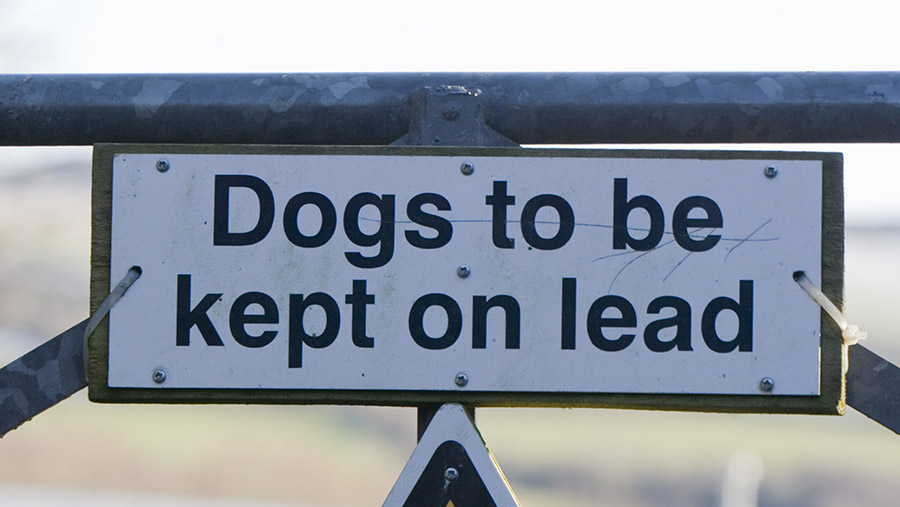Opinion: Time to toughen the law on sheep worrying
 © FLPA/REX/Shutterstock
© FLPA/REX/Shutterstock Public information films: you couldn’t move for them back in the day.
When I was growing up I was frankly terrified of not stopping, looking and listening when about to cross the road, for fear of the bloke who played Darth Vader in Star Wars giving me a ferocious bollocking.
The best and most memorable one for me, however, was with the late, great John Noakes telling people to keep their dogs on leads around livestock.
Despite some decidedly dodgy 1980s knitwear being involved, it certainly hasn’t lost any of its impact over the years. And like all the best messages, it’s simple, concise, and gets the point across in a way everyone can understand.
See also: Police failing to crack down on sheep worrying – special investigation
So where did this message get lost in the intervening years? And how did we get to a situation where, in 2016 alone, a staggering 15,000 sheep were killed or injured by dogs, at an estimated cost of £1.4 million to the industry, according to the All Parliamentary Group on Animal Welfare?
There won’t be many of us who haven’t, at the very least, seen horrifying pictures of sheep which have been attacked. Indeed, in last week’s Farmers Weekly there was a story from Northern Ireland of a dog attack in County Antrim which left seven dead sheep, two dead dogs and a devastated farmer.
As a fellow livestock farmer, I can’t imagine many things more abhorrent. The thought of it sends a shiver down my spine.
Where is the outrage?
So, where is the outrage among the non-farming population at this ultimate form of animal cruelty?
The statistics show that these aren’t isolated incidents, and a survey of more than 3,000 dog owners carried out by the RSPCA in 2017 found that 24% of owners reported that their dog chased livestock or wildlife.
Of these, just 29% sought help, and 43% did not even consider the behaviour a problem.
There are many excellent campaigns by the NFU, various farming publications and police forces around the country raising awareness of the subject, so why is the message not getting through to the general public?
Perhaps it’s symptomatic of what can seem to be a general apathy and lack of social responsibility among society at the moment. Perhaps it reflects a bigger picture of a rural crime epidemic that is not being taken seriously enough.
Trespassing on farmland
Reading Defra’s Health and Harmony consultation (the prelude to the Agriculture Bill now making its way through Parliament) last summer, the phrase that immediately jumped out at me was “increased access to the countryside”.
While I acknowledge the sentiment behind this, as a farmer it concerns me greatly that this will result in even more people trespassing on private land with uncontrolled dogs, and these attacks will increase still further.
The police want to set up a DNA database to help catch animals responsible, are seeking the power to confiscate dogs which repeatedly attack livestock, and are recommending a new law that requires people to keep them on a fixed lead around animals.
While these proposals are welcome, I’m not sure they go far enough. It’s time for the government to acknowledge the seriousness of the situation, quadruple the current maximum £1,000 fine, and make it a criminal offence with jail time for repeat offenders.
An update to the legislation is long overdue.
